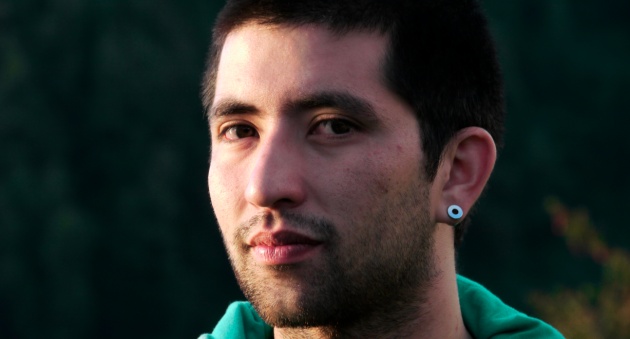Interview by Fereshteh Forough
"I feel that the difference with working with women is that there is a sensitivity and power projection that involves doing things in a more friendly way."

Ignacio Ruiz Alvarez is a director and animator who specializes in Art Direction and screenwriting. He was born in Puerto Montt City. He studied at the cinema school of Universidad de Valparaíso de Chile, followed by illustration at the Creatives School, Brother Advertisement. He was also trained in drawing and painting at Escuela de Arte y Cultura de Puerto Montt.
Below is an interview of him about Women's Annex and filmmaking industry in Afghanistan, Central and South Asia.
FA: What are some of the recurring themes you explore in your films?
There´s two principal topics in my work, on one side the fact renewed and to get ahead of any kind of situation, and On the other hand the observation and rescue of small stories that surround our daily lives.
FA: Generally, approximately how many women do you work with on your productions (cast and crew)? Can you tell us about the dynamics of working with women and whether it's different from working with male co-workers?
In my regular team I always work with Yeniffer Fasciani, she is my executive producer and my partner in each one of the cinematographyc projects. And about other womens, i used to work with at least 3 or 4, but it only depends on the project.
Beside Yeniffer, we have a working logic that complements each other's capacities. She is the one that makes the important decisions and manages to concrete each of the needs of our works. I like to work with her, because she is really comprehensive in the creative sense and understand from an emotional level each of the requirements of the script, and, when something can not be done, she has the ability to express it in a way to heal projects without limiting the possibilities in any respect.
Turning to the more general ambit, I feel that the difference when working with women, is there is a sensitivity and power projection that involves doing things in a more friendly way, and I am not talking about working less serious or with less professionalism, is simply that women notice things that as men we omit. I feel that it is important to have mixed teams, an overall vision always enriches any work.
FA: How can women be empowered through fine arts, especially a medium like filmmaking?
I feel that women are making great progress in this direction, certainly needs to do much more, but in these times there is a mentality in the arts / culture that is receptive of the works, without discrimination on the gender of the author. I believe that for women, to get empowered and get more success, the most important thing is the fact of being honest and firm with the topics they want to talk about. All the themes that women as a gender can speak about, and also their point of view about the topics that men always talk about. when a filmmaker has a sincere speech about her(his) reality or their personal interests, a part of the process is ready, the other part is about the distribution.
FA: What do you think of Women's Annex and its operation in Afghanistan, Central and South Asia?
I think it´s great, any initiative that gives a space to ethnics, genders, minority is a breakthrough for the development, understanding and openness of the realities that we all live. "Women's Annex" viewed from a western look(in Latin America) of the media about Afghanistan, Central and South Asia, is an incredible achievement for in the first instance, people without place in the official media to have an specific window to the world and in second place for us around the globe to hear and know what they (all the women in this case) think and want to communicate.

FA: Can your work be used as a source of inspiration for filmmakers in Afghanistan, Central and south Asia? If yes, how so? In other words, do you consider yourself a “Thought Leader”? If so, what do you think your influence is on your audience?
More than being a thought leader or an inspiration, I would like that people that see my films, note the honesty with work topics. At first, my interest from the ignorance of film technique, was to experience the limits and the opportunities in a visual level; then I completely turned my interest to human rescue and small stories from my hometown in southern Chile. If I were a leader of thought, I would say to people that take care about the little details and stories that make them unique from their experiences, telling things that nobody else can tell.
FA: Where do you see the future of developing countries like Afghanistan? Do you think filmmaking and social media can help improve their economy and education system?
Education, the most important point for the development of any nation lies there, if the efforts are not put on this, it is hard the integral development of a society. About filmmaking and social networks certainly are keys to development. Social networks are an impressive tool to approach various aspects that can enhance the culture, the social events through official and unofficial media and also allow to speak out about any issue. This last point is where becomes latent the importance of film as a medium to communicate, whether through the fiction animation, documentary, film making is a shout to the world about what we want to say, we do not need more than the minimum technical resources, because if there is anything to say, with a certain point of view, people will pay attention.



